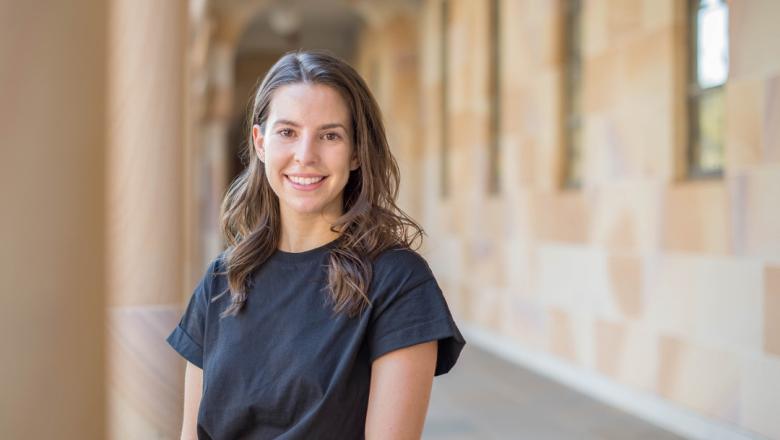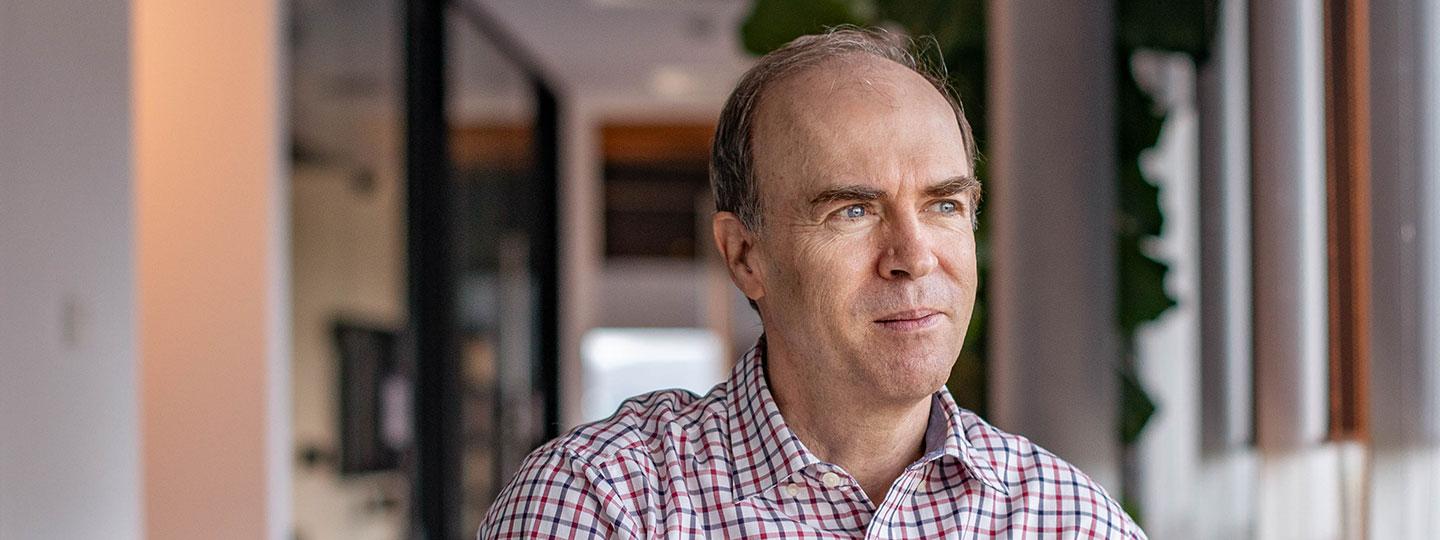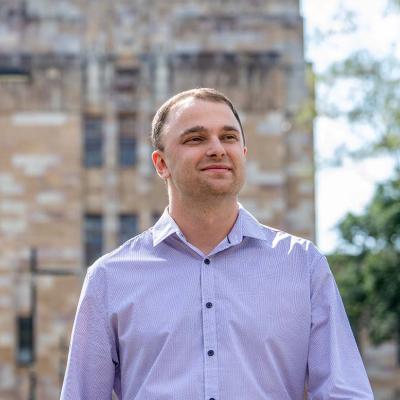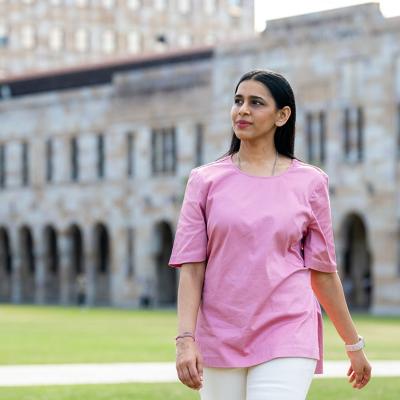For engineers wanting to move into management or start their own company, studying economics might be the answer.
Dr Carl Sherwood graduated in the early 1980s with a civil engineering degree and rose to the position of Associate Director. All up he spent almost 20 years working as a design engineer, contributing to notable projects such as various Westfield Shopping Centre developments across Australia.
Today he is the Director of Teaching and Learning at UQ School of Economics. When he looks back on his time as an engineer, he doesn’t feel regret. He sees a simple issue of supply and demand.
“Most people think civil engineers get paid a fortune, but a lot of them don’t because competition for projects can be strong," he says.
"However, a greater appreciation and an ability to apply economic concepts can help enhance their ability to get paid handsomely.”
If you're an engineer looking to differentiate yourself in the job market or start your own company, Carl's advice is to consider economics. Here are 3 reasons why.
1. Engineers have a natural aptitude for economics
“Engineers are ideal economics students because of their ability to think logically and their strong mathematical skills,” says Carl.
Megan Gannon, Data Engineer at Boeing Defence Australia, studied a postgraduate economics program at UQ. She found she had an advantage over some students because the maths is quite advanced.

Megan Gannon, Data Engineer at Boeing Defence Australia and UQ Graduate Certificate in Economic Studies graduate
2. Economics is useful for those aspiring to leadership
“As an engineer, I was in a large business and my role was purely technical,” says Megan.
"Now I can think about both the technical side and the business side.”
After graduating from the Graduate Certificate in Economic Studies, Megan was able to move up and laterally in her career. She says studying was not only a great experience, but her new employer also took notice of it when she applied, and she anticipates it remaining relevant for years to come.
Studying economics won't just help you understand your current organisation and accelerate your career within your industry; it can help you build success on your own.
“Economics teaches you how to become a forward-looking thinker,” says Carl.
“If you’re starting your own consultancy, you should be asking yourself about the nature of your company, who you will work with and what businesses you’re going to target."
"You can use economic theory to help make sense of all of that.”
3. A new way of thinking
“Taking the course, I realised that engineering and economics are different ways of seeing the world,” says Megan.
“As an engineer, you tend to be handed a problem and told to solve it. Whereas an economist is often not told what the problem is. They look at the raw data and ask, ‘What can we get out of this?’”
Carl agrees, saying his thinking has switched 180 degrees after learning to think like and use the language of an economist.
“I’m not an economist and still see myself as an engineer. But I have learned to think like both. As an engineer, I think in terms of calculating solutions to well-defined problems. From an economist’s perspective, I’ve learned to think in terms of critically evaluating choices.”
He offers an example of this with reference to the concept of demand.
“Engineers tend to think of demand as simply referring to a particular quantity. But to an economist, demand involves a particular quantity at a price. So, unlike an engineer, economists see demand as a mathematical relationship between both quantity and price.”
Upskill in economics in 1 year (part time)
If you're interested in upskilling, the Graduate Certificate in Economic Studies is an excellent launching pad. It’s a 1-year part time (6 months full time) program, delivered online and in person, and offers a simple pathway to a Master of Economics.
Carl helped design the program to ensure students leave with more than just a qualification. You will learn through authentic reflection by applying theories taught in lectures to your own life experiences.
“If you build a course around these sorts of activities, it becomes relevant to students,” he says.
“It means something. I don’t want students just completing courses as a box-ticking exercise and not learning anything."
“I remember doing statistics as an engineering student and I retained very little. Now I lecture statistics in the School of Economics. I’ve built the majority of an introductory course around a fish farming analogy, delivering difficult concepts using everyday language that everyone can understand.”
Teaching students how to make sense of statistics through storytelling was the basis of Carl's PhD thesis and central to him receiving an Australian Award for University Teaching Excellence (2017).
If you want to go further in your engineering career, upskilling in economics might be the right move for you. Take the first step, discover more about the Graduate Certificate in Economic Studies at UQ.





